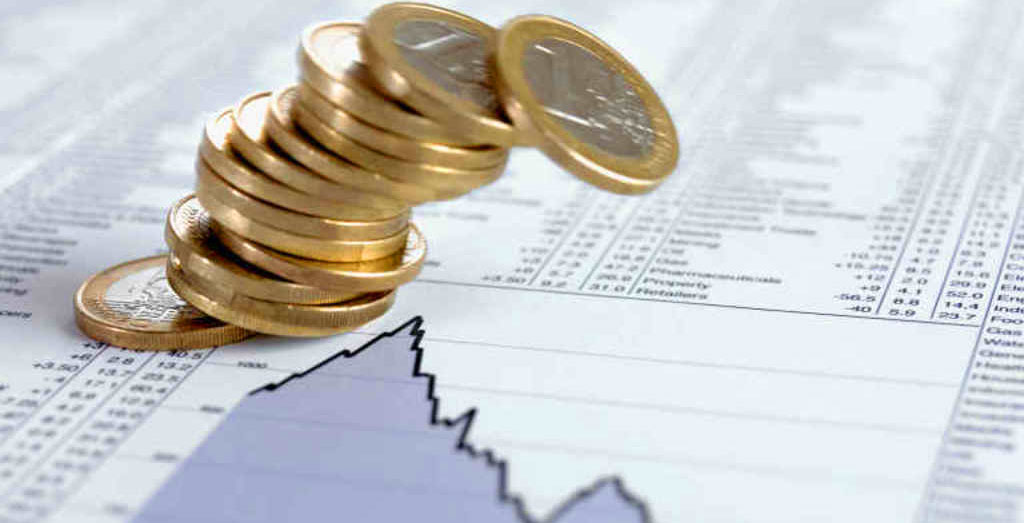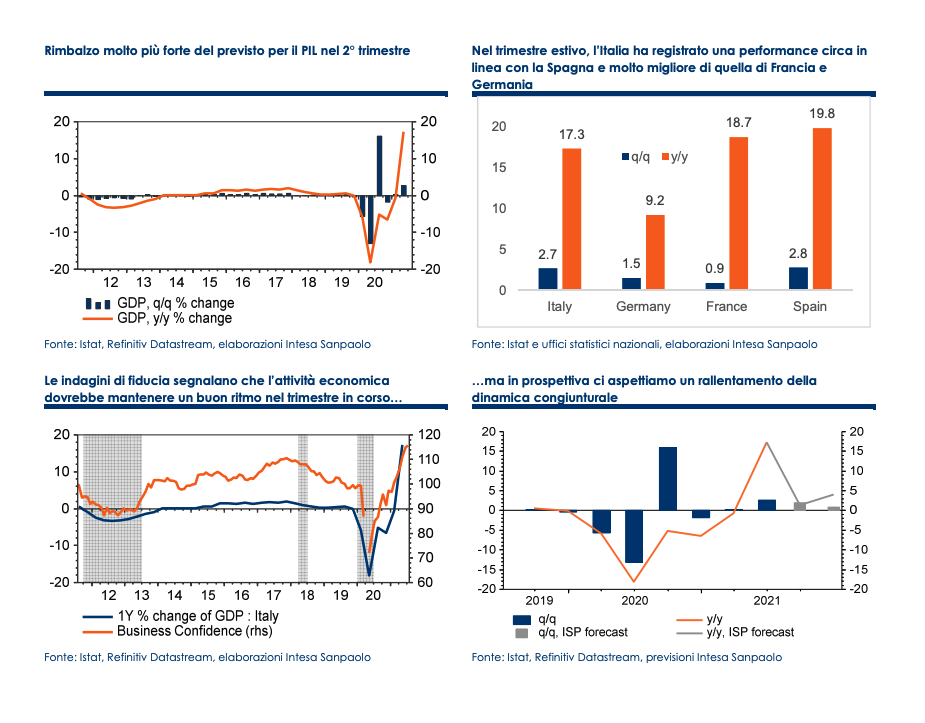Let’s not get too excited with GDP

GDP growth will remain positive in the coming quarters, but is set to slow down (on a quarterly basis) after the jump recorded in the spring months. The analysis by Paolo Mameli, senior economist in the studies and research department of Intesa Sanpaolo
Italian GDP grew much more than expected in the 2nd quarter (2.7% qoq), after a substantial stagnation at the beginning of the year (0.2% qoq, a figure revised up by one tenth compared to the previous estimate ).
The figure is much better than both consensus expectations (1.3% qoq) and our (more optimistic) forecast (1.5%).
In the quarter, the performance of the Italian economy was approximately in line with that of Spain (2.8% qoq) and much better than Germany (1.5% qoq) and France (0.9% qoq) and France (0.9% qoq). t).
On the year, growth jumped to + 17.3% (from -0.7% previously) due to the comparison with the months of tight lockdown in the spring of 2020.
However, the jump in GDP in Q2 leaves the Italian economy below pre-pandemic levels of 3.8%.
Istat will release the details on the components on the demand and supply side only on August 31st. However, according to what is reported in the press release by the statistics agency, the increase in added value is due to both services and industry (in the presence of stability in agriculture): we think that the greatest contribution came from the tertiary sector. , thanks to the almost complete release of restrictions on some service activities, which had peaked (after the first wave) at the end of the previous quarter.
On the demand side, Istat announces that there has been a positive contribution from both the national component and foreign trade – which is somewhat surprising, given that the monthly data on foreign trade (albeit relating only to goods and measured at market prices) had shown a greater liveliness of imports than exports. In any case, we believe that in the quarter the greatest contribution to growth came from household consumption (especially of services, with a significant contribution also from durable goods).
The growth acquired for 2021 (in the event of stagnation of economic activity in the rest of the year, a hypothesis that obviously appears extremely pessimistic) is equal to 4.8%. This suggests that GDP growth this year may be significantly higher than the most recent forecasts. Even assuming an expansion on a cyclical basis at less lively rhythms than the spring ones, it is possible that the final 2021 could record a rebound in GDP well above 5% (probably, in the 5-6% range).
Less buoyant growth is possible in the coming quarters, for two reasons:
- the "reopening effect" should have been maximum in the 2nd quarter (as suggested by the variation in the mobility indexes towards commercial and recreational businesses disseminated by Google), which was compared with a 1st quarter in which the peak of restrictions during the "second" and "third" wave of Covid-19;
- the ongoing rise in infections, if followed by an increase in hospitalizations, could at least induce economic agents to a new increase in caution in spending decisions, if not forcing the authorities to new restrictive measures, albeit probably more mild than those put in place during the previous waves. To date, it seems to be possible to say that the impact could be seen more in the autumn quarter than in the summer one, but the next few weeks will be decisive to understand if the progress of the vaccination campaign will be able to contain the pressures on the health system, thus avoiding restrictions with significant effects on economic activity.
Therefore, we think that GDP growth may remain largely positive in the coming quarters, but is set to slow gradually (on a quarterly basis) after the jump recorded in the spring months. In any case, it is unlikely that the new concerns relating to the epidemiological situation will prevent a rebound in GDP of more than 5% this year.

This is a machine translation from Italian language of a post published on Start Magazine at the URL https://www.startmag.it/economia/pil-economia/ on Fri, 30 Jul 2021 10:59:19 +0000.
